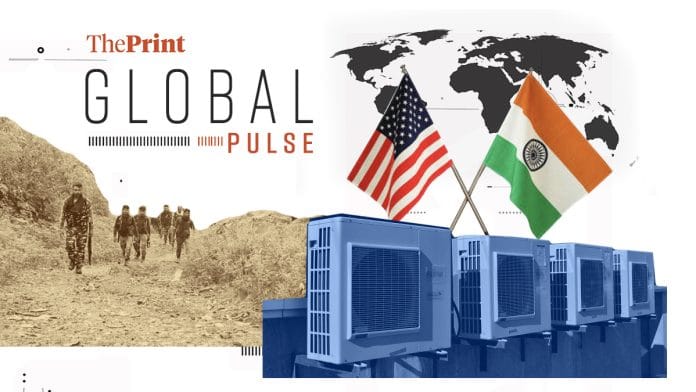New Delhi: As India prepares to limit the minimum temperature for air-conditioners to 20 degrees Celsius, Bloomberg reports that the biggest source of new electricity demand in India is air conditioning, not transport or data centres.
“India has said it’s working with appliance makers to limit the minimum temperature for air conditioners to 20C (68F). The appliances account for about one-fifth of the peak electricity load, according to the government,” states the report.
“In recent years, electricity demand has outpaced generation capacity, leaving parts of the country without power during the sweltering summer months of April through June.”
Also in Bloomberg, Shruti Srivastava reports that India and the US are due to “expedite” trade talks as US President Donald Trump’s tariff reforms kick off next month.
“India and the US are working on a phased trade deal with an early agreement targeted for July, the deadline for implementation of the Trump administration’s so-called reciprocal tariffs. Those tariffs—which target Indian exports with 26% levies—are facing legal challenges in Washington,” says the report.
The Guardian has a report pointing out that the end of India’s “Maoist rebellion” by way of Operation Kagar—a state-led crackdown—has also come at the cost of civilian life and human rights violations.
“The claims of atrocities against adivasis (tribals) in the name of anti-Naxalite operations go back years. Organisations such as Amnesty International and Human Rights Watch have documented over years how security forces have been implicated in extrajudicial killings—including allegations of what is referred to as ‘encounter killings’ in which police stage the deaths of civilians to look like the killing of Maoist fighters—and allegations of arbitrary detention, forced displacement and sexual violence,” says the report.
The BBC tracked down gangster on the run Goldy Brar, who divulged the reason behind the cold-blooded murder of 28-year-old Punjabi rapper Sidhu Moose Wala in 2022.
“His (Brar’s) response was coldly articulate. In his arrogance, he (Moose Wala) made some mistakes that could not be forgiven,” Brar told the BBC. “We had no option but to kill him. He had to face the consequences of his actions. It was either him or us. As simple as that.”
In an exclusive report, Reuters says Maruti Suzuki has slashed near-term production targets for its maiden electric vehicle e-Vitara because of shortage of rare earth minerals, a “sign of disruption” following Chinese export curbs.
“China’s curbs on some rare earth exports have rocked the global auto industry, with companies warning of severe supply chain disruptions. While some companies in the United States, Europe and Japan are seeing supplies easing as they secure licences from Beijing, India is still waiting for China’s approval amid fears of production stoppages,” says the report.
(Edited by Nida Fatima Siddiqui)






